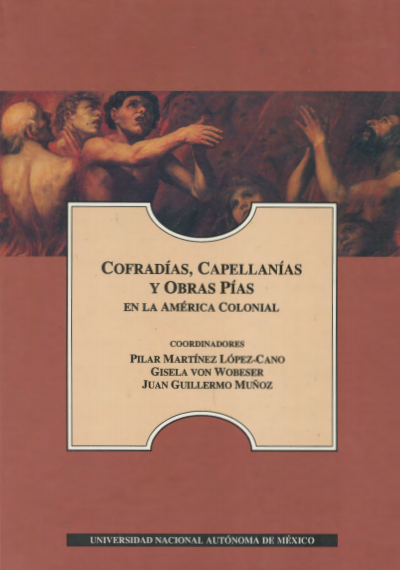
Libraries
Libraries
Brotherhoods, Chaplaincies and Pious Works in Colonial America
During the old regime, in the Hispanic scope, there were many institutions and foundations, promoted and supported by the civil society, that had a religious purpose, while they performed an important economic and social function. Among them were the brotherhoods, the pious works and the chaplaincies for the Mass. The Brotherhoods were associations of the people of faith who gave spiritual service and material assistance to its members.
Some of these fraternities arrived to have considerable possessions that they used to build churches, convents or oratories, or to maintain colleges, hospitals and other charitable institutions. In the villages of Indians, the brotherhoods controlled most of the existing wealth. Pious works were foundations that involved the donation of capital, intended to support unprotected sectors of society, such as orphans, widows, maidens without a dowry and the poor people. They could also be used to strengthen religious life, through the financing of celebrations and ceremonies, the provision of candles, oil and flowers, or the propagation of the cult of a saint or an invocation of the Virgin.
Mass chaplaincies were intended to sustain a chaplain, who received an annual income, and was supposed to officiate a certain number of Masses, in memory of the soul of the founder. The purpose of this work is to compare the development and importance of the brotherhoods, the pious foundations and the chaplaincies in Spain and in the different American kingdoms. This volume gathers seventeen articles: two articles refer to Spain; eleven, to New Spain; one, to Peru; one, to the Río de la Plata, one is a comparative study between the brotherhood of Aránzazu de Lima and Mexico and, finally, one is referring to Chile.

